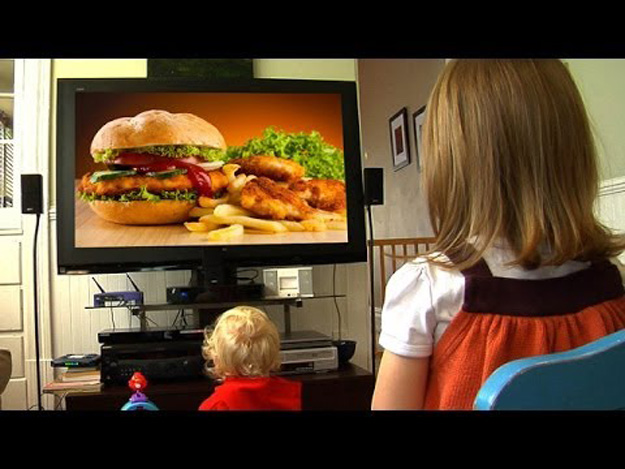
Obese children picture themselves eating the unhealthy foods shown on television commercials which in turn can affect their real-life eating habits, new research says.
TV food commercials disproportionately stimulate the brains of overweight teenagers, including the regions that control pleasure, taste and the mouth, suggesting they mentally simulate unhealthy eating habits, the researchers said.
Read: Nine of world's 10 most obese countries are in the Pacific
"This finding suggests the intriguing possibility that overweight adolescents mentally simulate eating while watching food commercials," said lead author Kristina Rapuano, graduate student at Dartmouth University in the US.
 PHOTO: HERINST
PHOTO: HERINST"These brain responses may demonstrate one factor whereby unhealthy eating behaviours become reinforced and turned into habits that potentially hamper a person's ability lose weight later in life," Kristina said.
Dieting efforts should not only target the initial desire to eat tempting food, but the subsequent thinking about actually tasting and eating it.
Thus, one should picture himself munching a salad rather than a cheeseburger, the study stated.
Read: 7 ways to be happy at work
Using functional magnetic resonance imaging (MRI), the researchers examined brain responses to two dozen fast food commercials and non-food commercials in overweight and healthy-weight adolescents aged 12-16.
 PHOTO: NEWS.YALE
PHOTO: NEWS.YALEThe brain regions involved in attention and focus and in processing rewards were more strongly active while viewing food commercials than non-food commercials.
According to a new report by Yale Rudd Center for Food Policy & Obesity, the fast food industry spent $4.6 billion on advertisements in 2012 aimed at children and teens.
A follow-up report of a 2010 study titled Fast Food FACTS 2013, states, "Children aged six to 11 saw 10 per cent fewer TV ads for fast food, but children and teens continued to see three to five fast food ads on TV every day."
Besides television, fast food industries are now actively advertising on social media, taking advantage of children's habit of playing online.
 PHOTO: INDEPENDENT.CO.UK
PHOTO: INDEPENDENT.CO.UKA report by the British Heart Foundation (BHF) and the Children's Food Campaign (CFC) reported that "children continue to be swamped with commercial messages with one purpose: to persuade them to consume unhealthy products."
The Telegraph states, "Facebook allows children to influence each other because they can ‘like’ a product leading to peer pressure and subtle messages that such products are fashionable."
These unhealthy habits are likely to cause problems in the near future for these kids, and while the fast food industries continue to bombard children with this information, parents need to monitor what their child is watching at all times.









































COMMENTS
Comments are moderated and generally will be posted if they are on-topic and not abusive.
For more information, please see our Comments FAQ